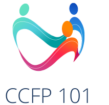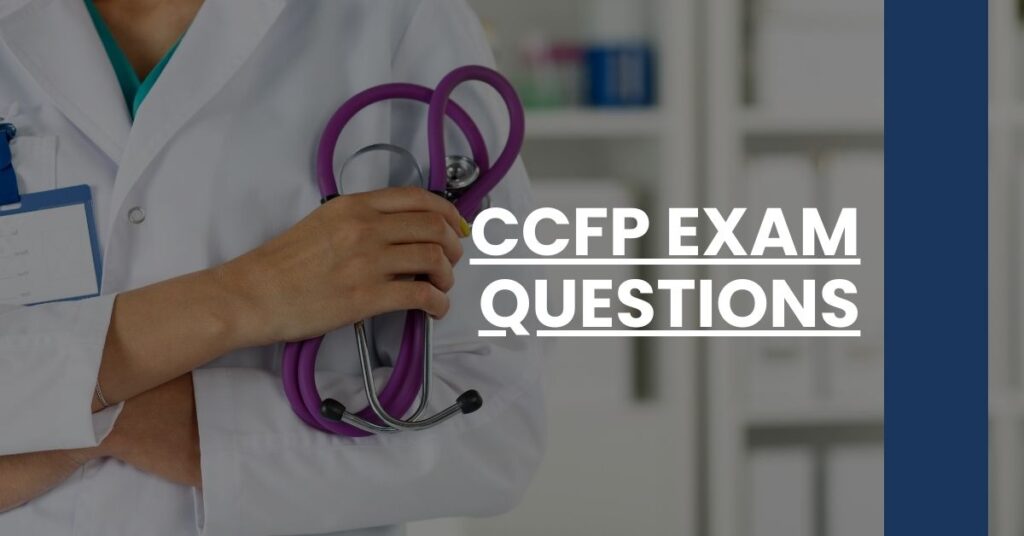Mastering CCFP exam questions is crucial for aspiring family physicians.
- Crucial CCFP Exam Questions: Prepare for the key components such as SOOs and SAMPs.
- Effective Study Strategies: Discover study tips tailored for CCFP exam success.
- Select Quality Resources: Utilize the best materials aligned with the CCFP curriculum.
Ace your CCFP exam questions with the right approach.
Understanding the CCFP Exam
The Certification Examination in Family Medicine, known as the CCFP, stands as a pivotal milestone in the journey of many aspiring family physicians across Canada. It’s the gateway to attaining professional certification from the College of Family Physicians of Canada (CFPC), ensuring that a practitioner meets national standards for patient care.
What is the CCFP Exam?
First key idea: The CCFP exam is your stepping stone into the rewarding field of family medicine. This exam assesses your medical knowledge, clinical skills, and the ability to apply these in a practical, patient-centered manner. Second key idea: Not only is this exam a requirement for certification, but it also serves as a benchmark for the competencies desired in a family medicine physician, encompassing aspects from patient care to ethical decision-making.
Why is the CCFP Exam Important?
This exam transcends a simple test, functioning as a statement of your readiness to provide comprehensive, continuous care to the community. With the CCFP title, you firm up your standing in a network of professionals committed to the highest levels of family medicine practice.
Components of the CCFP Exam
The CCFP exam is a nuanced evaluation with two distinctive formats: the Simulated Office Orals (SOOs) and the Short-Answer Management Problems (SAMPs). Each format is designed to assess different skill sets crucial for a family physician.
Dissecting the SOOs
Simulated Office Orals are like a bridge between theoretical knowledge and practical know-how, presenting you with patient scenarios to navigate through. Here’s what you can expect:
- Real-time interactions: Despite being a simulated setting, the realism demands your quick thinking and patient-first approach.
- Varied presentations: Patients come with an array of concerns, testing your adaptability.
- Assessment of management skills: From diagnosis to follow-up, your comprehensive care ability is on display.
Indeed, mastering the SOOs can be challenging, but with the right preparation and understanding of SOO structure including the FIFE model—Findings, Interpretation, Feelings, Expectations—you can walk in confident and come out successful.
Unpacking the SAMPs
The SAMP section is where your problem-solving skills meet real-world clinical situations. Key factors to remember are:
- Precision: Brevity paired with accuracy is your ally.
- Practicality: How well can you translate medical protocol into actionable steps for patients?
- Time management: Efficiency is crucial as you cycle through a variety of questions.
Above all, knowing how to interpret and answer SAMP questions is vital. A deep dive into past SAMP questions and practice questions is not just recommended; it’s practically a mandate for those committed to passing the CCFP exam.
Assessment Objectives for CCFP Certification
Brace yourself for an exam that’s as broad as it is deep. The CCFP certification objectives cover a vast spectrum of medical knowledge and practice skills crucial for family physicians. Here’s what you need to showcase:
- Medical Expertise: Evidence-based care is the cornerstone here.
- Communication Skills: A physician’s ability to communicate—be it with patients or peers—ranks high on the assessment criteria.
- Professionalism: Upholding the ethical and professional values of the medical field is non-negotiable.
These objectives are more than just guidelines; they’re the essential blueprint of the exam content. They highlight the areas you need to excel in, and aligning your study with these assessment objectives is a strategic move.
Preparing for SAMPs
As you gear up to tackle the SAMPs, preparation is non-negotiable. This isn’t about rote learning; it’s about absorbing material and applying it effectively. So, how do you prepare for such a task? Here’s a plan:
- Familiarize with the Format: Understand the SAMP structure and what it’s asking of you.
- Use High-Yield Resources: Select study materials that align with the CCFP objectives and offer a mix of learning and practice.
- Practice Regularly: Consistently work through practice SAMPs to build up exam day muscle memory.
But remember, preparing for SAMPs involves not just knowing family medicine inside out but also knowing how to efficiently manage your time and resources. Seek out targeted practice options, like those offered by CCFP Exam Prep Courses, to ensure you’re as ready as can be.
Effective Study Strategies for the CCFP Exam
When preparing for the CCFP exam questions, it’s essential to approach your study sessions with as much precision as you would a patient’s care plan. It’s about finding strategies that work for you, strategies that will prepare you not just for the exam but for the career that follows.
Create a Study Schedule
- Start early: Give yourself ample time to cover all topics thoroughly.
- Plan your weeks: Allocate specific days for SOOs, SAMPs, and review sessions.
- Allow for flexibility: Life happens; be ready to adjust as needed.
Engage in Active Learning
- Use technology wisely: Platforms with interactive learning tools can reinforce your knowledge through engagement.
- Teaching others: Explaining concepts to peers can solidify your understanding.
- Practice questions: Regularly challenge yourself with exam-like scenarios to test your readiness.
Work on Weaknesses
- Identify gaps: Honesty about personal knowledge gaps is critical.
- Focus on improvement: Allocate more time to areas that are challenging.
- Seek help when needed: Mentors, study groups, or professional prep courses can provide guidance and support.
Simulate Exam Conditions
- Practice under time constraints: This can help with the pace you’ll need during the actual exam.
- Create a test environment: Mimic exam settings to reduce anxiety on the big day.
Tailoring your study plan to match the specific challenges posed by the CCFP exam questions not only prepares you for exam success but also lays the groundwork for a successful practice.
Selecting the Right Study Resources
The study resources you choose can make or break your preparation for the CCFP exam questions. Quality over quantity is key, and being discerning about which materials you use is a wise strategy.
Official CCFP Resources
- Guidelines: The CFPC official website provides comprehensive guides tailored to the exam.
- Practice exercises: Enhance your readiness with practical examples.
Textbooks and Review Books
- Core content: Select books like those recommended on the official CCFP resource list that are in line with the current CCFP curriculum.
- Recently published: Ensure your sources are current to reflect the latest guidelines.
Digital and Online Resources
- Apps and ebooks: Digital tools allow for study on-the-go and often include interactive features.
- Online communities: Forums and groups can be resources for exchanging insights and study tips.
Go for resources that are unanimously recognized as aligning well with the objectives and style of the CCFP exam, and that stimulate active learning and retention.
Practical Tips for Exam Day
When D-Day arrives, all the CCFP exam questions you’ve practiced and mulled over will be put to the test. Here’s how to ensure your hard work pays off:
Prepare Mentally and Physically
- Rest well: A clear mind is your best asset during the exam.
- Eat right: Maintain a balanced diet leading up to and on the exam day.
Manage Your Time
- Pace yourself: Assign time limits for each section and stick to them.
- Check the clock: Regularly monitor your progress without letting it disrupt your flow.
Stay Calm
- Breathing exercises: Keep nerves at bay with deep, calming breaths.
- Positive self-talk: Remind yourself of your preparation and capability.
Having a game plan for exam day, including time management and stress reduction techniques, will set you on the path for success. Remember, the exam is not just assessing your knowledge but also your ability to perform under pressure—so stay focused and calm.
Conclusion
As you prepare to tackle the CCFP exam questions, remember that this exam is not only a test of your medical knowledge but also your ability to apply it in a patient-centric way. By creating a structured study plan, utilizing the best study resources, and adopting practical strategies on exam day, you’re laying a solid foundation that will echo throughout your career as a family physician.
Stand confident in your preparation, engage with the material actively, and approach your exam with the same care and consideration that you would offer your patients. With these tools and strategies at your disposal, you are well on your way to excelling in your CCFP exam and beyond.
CCFP exam questions mastered with expert tips, study strategies, and resource selection for confident, successful family medicine certification.

